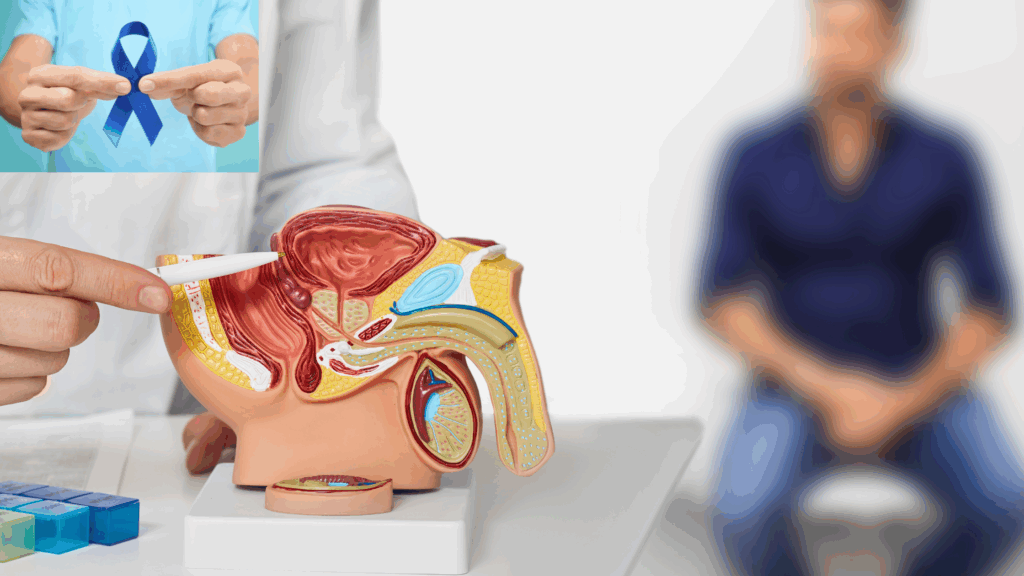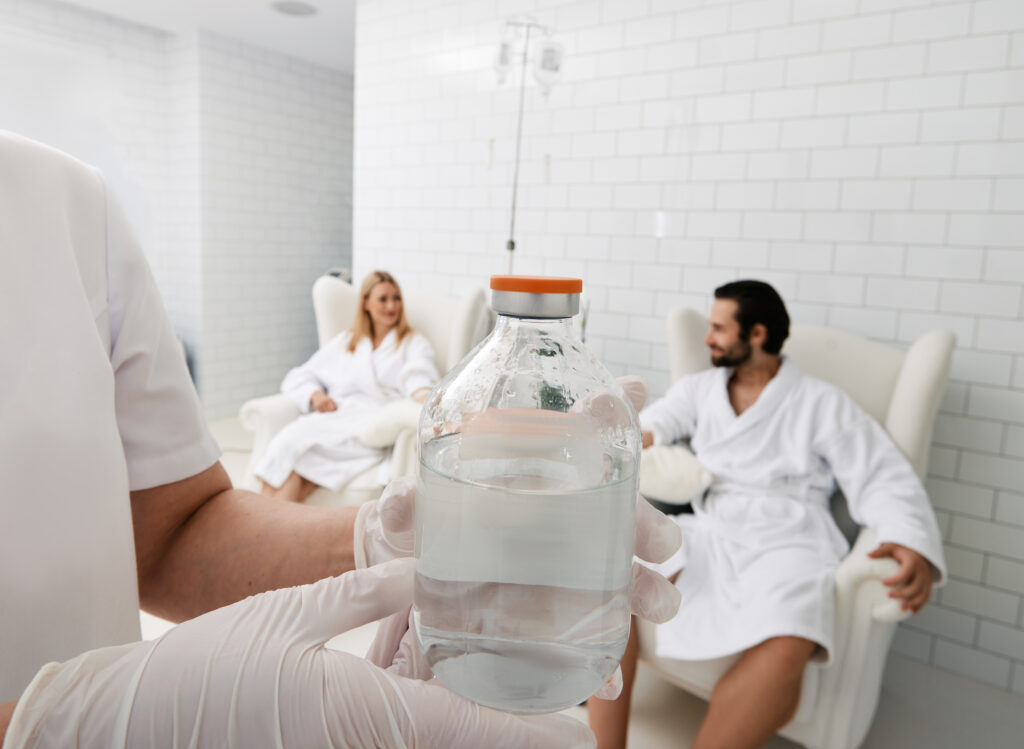Testosterone Therapy & Prostate Cancer: What New Research Really Says About Safety and Risk

Introduction
For decades, men were told that testosterone therapy might fuel prostate cancer. But emerging scientific evidence has revealed the opposite may be true. A major review published in European Urology has reshaped the conversation, demonstrating that low testosterone is associated with more aggressive forms of prostate cancer, while properly monitored testosterone therapy (HRT) does not appear to increase the risk of developing or recurring disease.
A Shift in Thinking: The Saturation Model
Historically, the belief that testosterone “feeds” prostate cancer—known as the androgen hypothesis—was based on outdated research from the 1940s. But today, scientists recognize a more accurate model: the saturation model. This model shows that prostate tissue responds to testosterone only up to a threshold (about 250 ng/dL). Once that level is reached, additional testosterone does not stimulate further growth.
In other words, prostate cancer is highly sensitive to very low testosterone levels but becomes indifferent to changes once testosterone levels are in the normal range.
True vs. False: What the Research Actually Shows
| Claim | Fact Check |
|---|---|
| High testosterone causes prostate cancer. | False. Multiple large studies show no link between high T and increased cancer risk. |
| Low testosterone is protective against cancer. | False. Low T is associated with more aggressive, high-grade tumors. |
| Testosterone therapy after prostate cancer is unsafe. | False. Evidence supports its safety in select, monitored patients. |
| Testosterone therapy increases PSA and prostate size. | False. Controlled studies show no significant changes in healthy men. |
| Low testosterone may signal higher cancer risk. | True. Low T is linked with higher recurrence and tumor volume. |
Key Findings from the Research
1. High Testosterone Does Not Increase Risk
- A pooled analysis of 18 large studies (3,886 men with prostate cancer and 6,438 controls) found no link between prostate cancer and total, free, or bioavailable testosterone levels.
- Healthy men given high doses of testosterone over 20 weeks experienced no increase in prostate volume or PSA levels.
2. Low Testosterone Linked to Aggressive Prostate Cancer
- Men with testosterone levels below 300 ng/dL had a significantly higher rate of high-grade cancer (Gleason ≥ 7), greater tumor volume, and higher likelihood of recurrence.
- One study showed a 47% prostate cancer detection rate in men with low testosterone, compared to 28% in men with normal levels.
3. Testosterone Therapy Appears Safe Post-Treatment
- In a group of 103 men who received testosterone therapy after prostatectomy, only 4% experienced recurrence, compared to 16% in the non-treated control group.
- Other studies have shown no recurrence among men treated after radiation or brachytherapy—even among high-risk patients.
4. Testosterone Therapy in Men on Active Surveillance
Even men with untreated prostate cancer (on active surveillance) showed no evidence of cancer progression while receiving testosterone therapy. In a 2.5-year study, 54% of these men had no detectable cancer on follow-up biopsy.
What This Means for Men
- Low testosterone may be a warning sign—not a protective factor—against prostate cancer.
- Testosterone therapy does not appear to increase the risk of developing or recurring prostate cancer in most cases.
- HRT should be offered responsibly, with proper PSA monitoring and informed consent, especially in men with a history of prostate cancer.
Expert-Guided HRT at Fleur-De-Lis Aesthetics
At Fleur-De-Lis Aesthetics & Apothecary in New Orleans, we provide evidence-based hormone replacement therapy for men with symptoms of testosterone deficiency, including:
- Low energy or motivation
- Decreased libido and performance
- Loss of muscle mass or strength
- Mood changes, brain fog, or sleep disturbances
Our HRT services include thorough hormone evaluation, PSA testing, personalized treatment planning, and close medical follow-up under the direction of Dr. Courtney Arianne Washington, DO.
Schedule Your Consultation
If you’re experiencing symptoms of low testosterone or have questions about the safety of hormone therapy, we invite you to book a consultation.
3001 Napoleon Avenue, New Orleans, LA 70125
Phone: 504-874-9570
References
- Huggins C, Hodges CV. Cancer Res. 1941;1:293–7.
- Khera M, et al. A New Era of Testosterone and Prostate Cancer. Eur Urol. 2014;65:115–123.
- Roddam AW, et al. J Natl Cancer Inst. 2008;100:170–83.
- Bhasin S, et al. N Engl J Med. 1996;335:1–7.
- Xylinas E, et al. BJU Int. 2011;107:1400–3.
- Hoffman MA, et al. J Urol. 2000;163:824–7.
- Pastuszak AW, et al. J Urol. 2013;190:639–44.
- Agarwal PK, Oefelein MG. J Urol. 2005;173:533–6.
- Sarosdy MF. Cancer. 2007;109:536–41.
- Morgentaler A, et al. J Urol. 2011;185:1256–60.
Blog
Related Posts





Feel Confident, Look Gorgeous Services to Boost Your Confidence
Lorem ipsum dolor sit amet consectetur. Fringilla pellentesque etiam natoque vel condimentum.
Blandit placerat euismod mi senectus integerLaoreet malesuada ac eget quis eu tincidunt Aliquet
